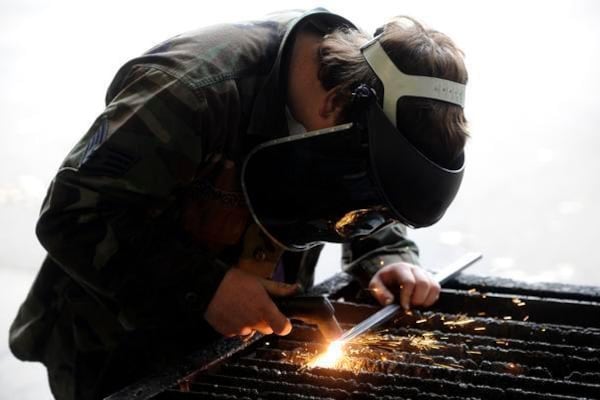Certain college programs that depend on hands-on instruction can restart in-person classes as Colorado eases its stay-at-home order.
On Tuesday, the Colorado Department of Higher Education released guidance to schools on exceptions to remote learning after Gov. Jared Polis issued a “safer at home” order on Monday.
The guidance, effective immediately, says schools will be allowed “to provide in-person classroom or laboratory instruction in programs and courses that cannot be taught remotely.” Colorado appears to be among the first states to allow a limited reopening of campuses during the coronavirus pandemic.
Megan McDermott, a higher education department spokeswoman, said the guidance is designed for career and technical programs but could apply to any school that believes in-person instruction is essential. For example, she said, schools can’t effectively teach programs and courses like welding or automotive technology in remote learning environments due to their hands-on nature.
Schools will need to submit to the Colorado higher education department that they want to open certain programs or courses. Programs would have to limit class sizes to 10 students and enforce the state’s social distancing requirements. Students would be allowed to opt out of instruction if they are enrolled in an in-person program that reopens.
If a school’s chief executive suspends classes, schools must ensure students do not face any academic penalty as a result.
There is widespread interest from community colleges and private occupational schools in seeking an exception, McDermott said. The department will review and track which schools decide to open programs, she said.
Colleges and universities are not permitted to offer face-to-face classroom teaching unless they meet the criteria for an exception, according to the guidance.
To open, college leaders will need to submit information to the higher education department with the name of the course, when classes will begin and end, the number of students expected to enroll, and the reason why the program cannot be taught remotely.
Schools also will need to agree to abide by Colorado Department of Public Health and Environment guidelines to mitigate the spread of the coronavirus. They include:
- Maintaining 6-foot social distancing requirements
- Deep cleaning of classrooms and equipment
- Posting signs in classrooms on hygiene and safety measures
- Ensuring that ventilation of classroom and office spaces meets Occupational Safety and Health Administration guidance
- Making efforts to limit the sharing of equipment and other resources
- Restricting group gatherings outside of classes
- Putting in place symptom monitoring protocols
- Issuing protective protocols if any students, faculty, or staff develop symptoms of COVID-19





